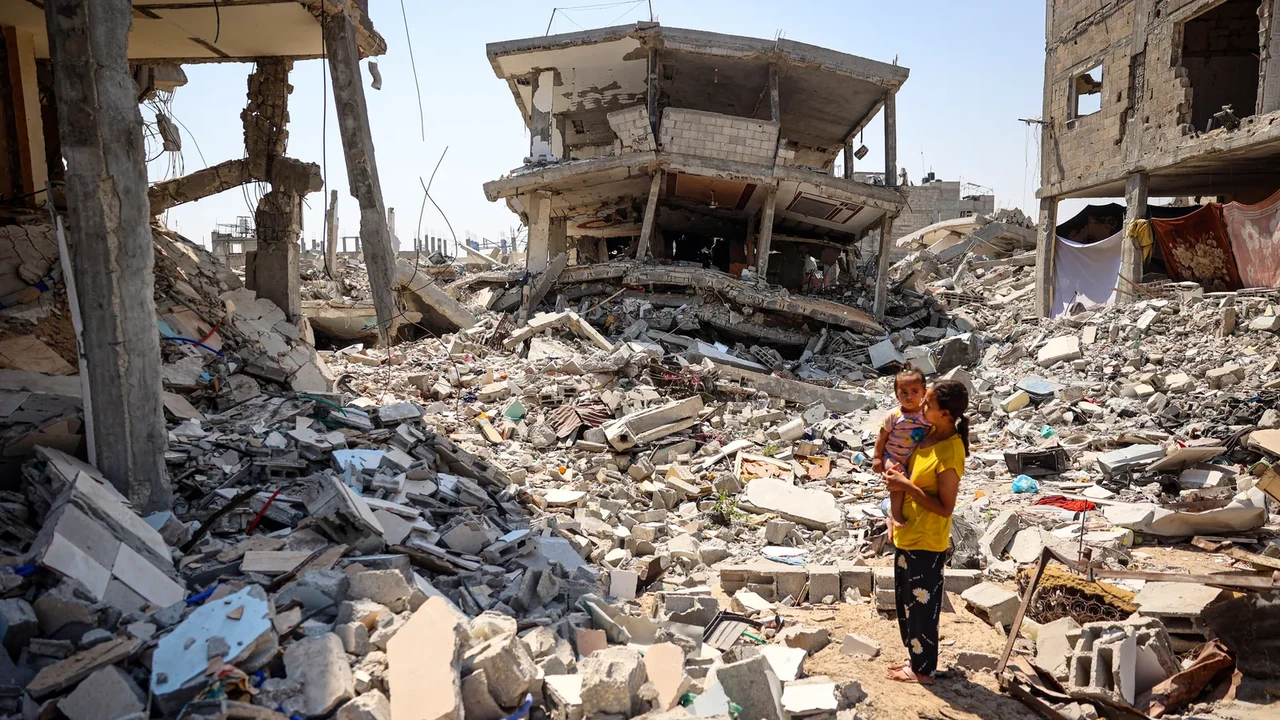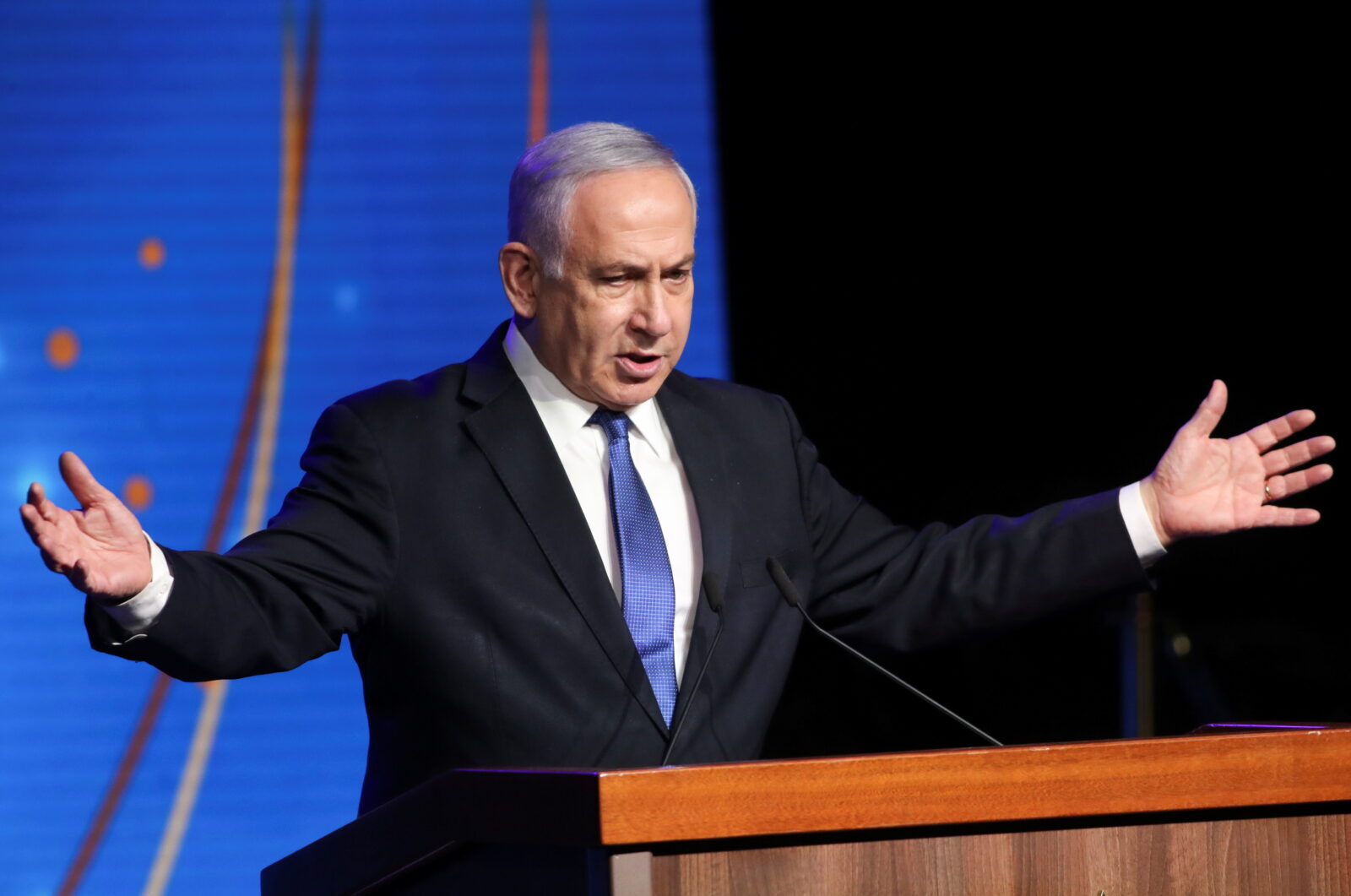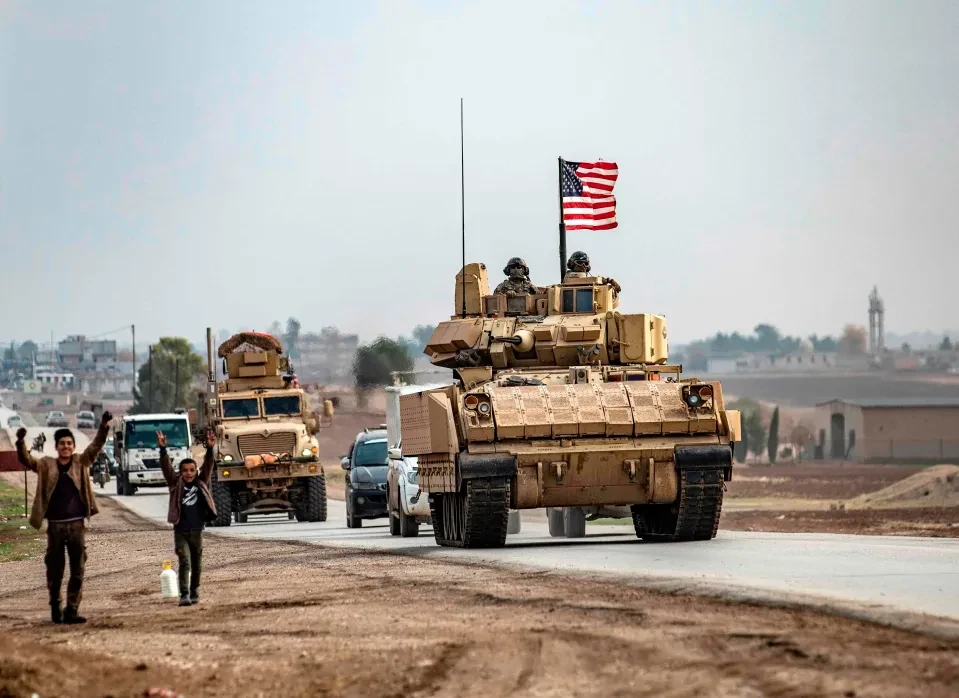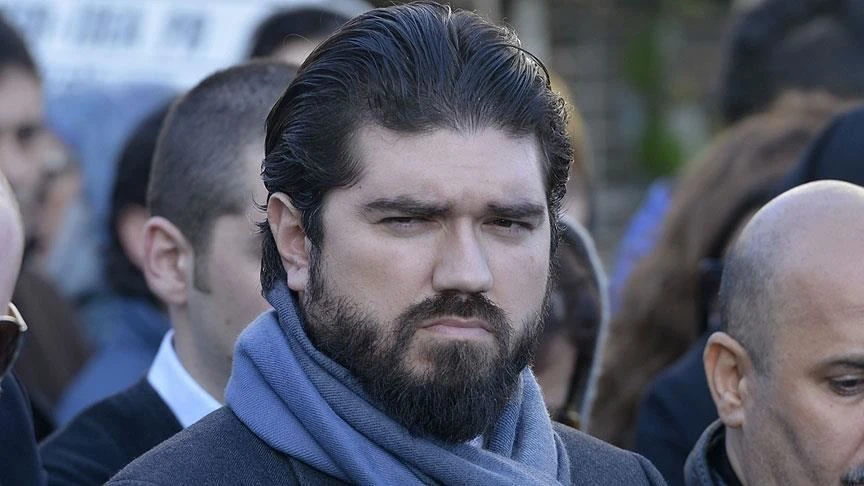Turkish intelligence head, Hamas leader engage in key talks on Gaza cease-fire
 A woman stands holding a child surrounded by the rubble of buildings destroyed during Israeli bombardment in Khan Yunis in the southern Gaza Strip on Jun. 23, 2024. (AFP Photo)
A woman stands holding a child surrounded by the rubble of buildings destroyed during Israeli bombardment in Khan Yunis in the southern Gaza Strip on Jun. 23, 2024. (AFP Photo)
The head of Türkiye’s National Intelligence Organization (MIT), Ibrahim Kalin, and the political bureau chief of the Palestinian group Hamas, Ismail Haniyeh, recently engaged in discussions regarding the latest developments in the Gaza cease-fire negotiations.

Key discussion points
- Permanent cease-fire: Kalin and Haniyeh deliberated on steps to secure a lasting cease-fire in the region.
- Hostage-prisoner exchange: They explored potential arrangements for a hostage-prisoner exchange.
- Humanitarian aid: The delivery of humanitarian aid to Gaza was also a focal point of their discussions.

Türkiye’s support for Palestine
Kalin expressed condolences to Haniyeh for the loss of his sister in an Israeli attack and the Palestinian lives lost in the ongoing conflict. He reaffirmed Türkiye’s commitment to standing by the Palestinians.
Israeli PM Netanyahu’s position
According to The Times of Israel, Israeli Prime Minister Benjamin Netanyahu spoke ahead of the weekly cabinet meeting about the ongoing Gaza conflict, which has lasted for 268 days, resulting in 37,877 casualties.
Netanyahu claimed to support the cease-fire proposal but accused Hamas of blocking the release of prisoners. He asserted that Israeli attacks, which have caused significant destruction in Gaza, would continue until their objectives are met.
In a June 23 interview with Israel’s Channel 14, Netanyahu indicated readiness for a partial agreement but not a complete cessation of attacks.

Indirect negotiation process between Israel and Hamas
- On May 6, Hamas informed Qatari and Egyptian officials of their approval of a cease-fire proposal, which Israel rejected, citing unmet conditions.
- On May 31, U.S. President Joe Biden announced a new three-phase cease-fire proposal from Israel. Despite this, Netanyahu stated that Israeli operations in Gaza would persist until their “set goals” were achieved.
- Netanyahu highlighted gaps between Israel’s proposal and Biden’s announcement during a speech to the Knesset’s Foreign Affairs and Defense Committee on June 3.



